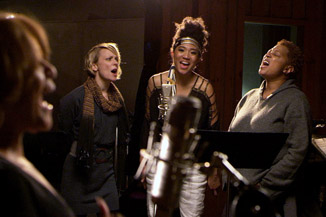|
|
They Shoot Oscar Prognosticators, Don’t They?Document This: A Look at the Documentary RacesBy J. Don BirnamFebruary 24, 2014
My favorite of the year, Dirty Wars, is also unlikely to walk home a winner, mainly because the Academy has steadfastly refused (with one lone exception for Taxi to the Dark Side) to award in this race pieces that deal with the war on terror and/or America’s strategies abroad. Like The Square, “Wars” suffers from a somewhat disjointed and unclear narrative arc. It follows a daring investigative journalist as he travels to the sight of mysterious civilian deaths in Afghanistan. He discovers that the United States and its allies attempted to cover up the deaths, and that discovery leads him to follow in the footsteps of the Joint Special Operations Command and their missions and strikes, including one against a U.S. citizen, in other hot spots of the world. The film is the most interesting and daring of the bunch, but, again, lacks a clearly unifying or overarching theme, or at the least a central plot to cohere around. You feel that the film and subject matter are important, but it is hard to discern why or how it can be distinguished from the other current affairs entry, The Square. Most pundits think that the front-runner is The Act of Killing, a movie that follows former death-squad members from the Indonesian Government as they attempt to recreate their 50-year-old crimes in a fictionalized film of their own, and the different emotions that these now elderly individuals experience as they embark on this journey. The film has all the trappings of a more stylized documentary: it is a movie about making a movie, but not just any movie, one that recounts horrific genocidal crimes that have gone unpunished by the global community of nations. So the gravitas is definitely there. Yet the main protagonists are so grotesque and so unlikable - they are depicted at times laughing jovially so that even their acts of contrition seem too-little too-late - that it may hurt the film’s chances. But, it must be said that this movie is the critical darling, has won the BAFTA, and I can clearly see that the artistic merit of the movie lies precisely in telling the horrific story and magnificently capturing the transformative power that reenacting the crimes had on the criminals. So it is probably your safest best for your Oscar pool.
|

|
|
|

|
Thursday, October 31, 2024
© 2024 Box Office Prophets, a division of One Of Us, Inc.


